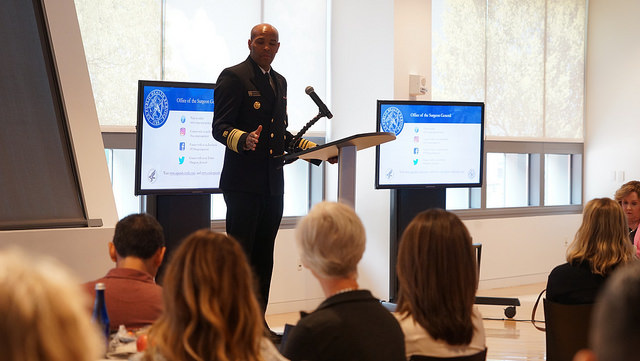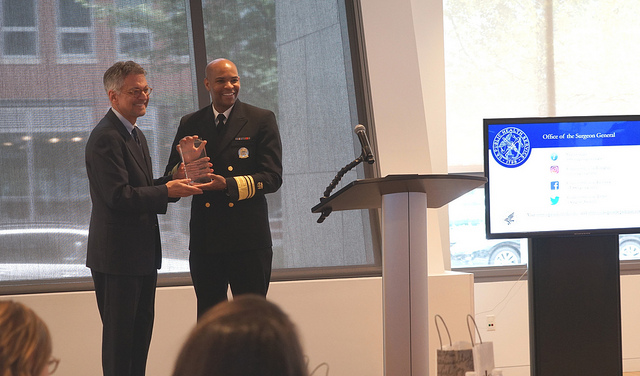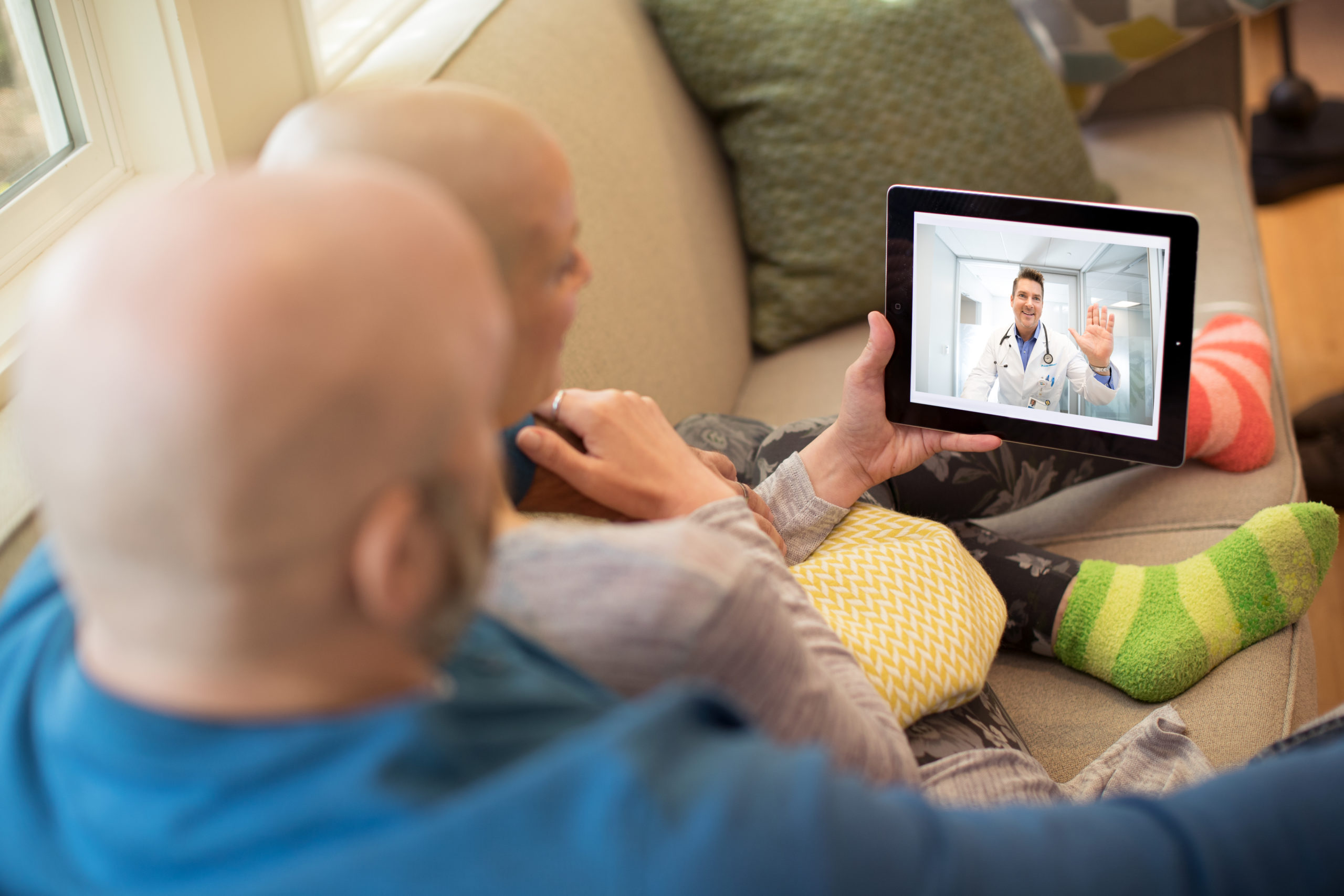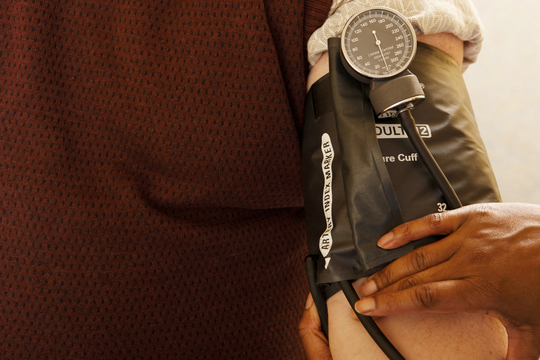The Center for Total Health was honored with a recent visit from Dr. Jerome Adams, the U.S. Surgeon General, who shared his efforts around community health, national security, and addressed the opioid crisis – with a personal story about how opioids have affected his family. Dr. Adams was at the Center to receive the Hero Award from Trust for America’s Health and the Healthy Schools Campaign during the Healthy Students, Promising Futures Learning Collaborative. The collaborative comprises 15 state teams with representation from state Departments of Education, state Medicaid agencies, school districts, and the Centers for Disease Control and Prevention. The teams meet twice a year to facilitate cross state conversation, brainstorm ideas of improving access to quality health care for underserved children, and work to expand Medicaid services in schools nationwide.
Adams was pleased with the teams’ work in prioritizing health as a key tool to improve education which aligns with his motto: “Better health, through better partnerships.”
A person dies from an opioid overdose every 12.5 minutes.
“There’s a person dying from opioid overdose every 12.5 minutes and the shocking part about that is most of these individuals are dying in a home environment,” said Adams. “I can’t tell you how many moms and dads I’ve met who say to me that their son died just on the other side of the bathroom wall; just on the other side of the bedroom door; just outside in their garage.”
Stories like these resonate with Adams who shared a similar struggle of not being able to save a family member from a path of substance abuse.
“My brother is in prison about ten miles from here due to crimes he committed for his addiction,” Adams said.
Adams spoke about his brother’s unrecognized battle with depression and anxiety and how he used self-medicating as a mechanism to cope.
“Tobacco use led to alcohol use then ultimately, he was given a pill at a party and the rest is history,” he said.
Reflecting on the past, Adams contemplates what could have been done differently.
“The frustrating thing was—despite being a health professional, despite being a state health commissioner, despite being Surgeon General of the U.S.—there’s still not a lot that I could have individually done because ultimately the people who had the most influence on him were those in his school setting, in his environment.”

Adams encouraged the audience to raise awareness about the FDA-approved drug naloxone, a potentially life-saving medication that can reverse the effects of an opioid overdose and is available without a written prescription.
“I’m proud to say that now all 50 states have Naloxone available,” he said.
He gave a walk-through explanation on how anyone can administer the drug via an auto-injector or nasal spray.
“I ask you to help me raise awareness about naloxone. I also ask that you help me raise awareness among the youth about the killer in our medicine cabinets and the dangers of overdose.”
Twenty percent of our GDP is spent on health care.
“One out of every five dollars in the United States right now is going towards health care. The more we see that number go up, the less money we’re going to have to fund education,” Adams said.
Earlier this year, the Kaiser Family Foundation released a collection of charts on how health spending in the United States compares to other countries with high and low incomes. According to the Peterson-Kaiser Health System Tracker, the U.S. spends a disproportionate amount on health care in relation to the country’s wealth. For more information, read here.
Adams said we are a less safe nation right now because we are not healthy.
Currently, seven out of ten young adults in the U.S. are ineligible for military services.
“Seventy percent of the children you all are educating are ineligible for military services by the time they reach the age of 18,” he said. “Number one, they can’t pass a physical (exam); number two, they can’t meet the educational requirements; and number three, they have a criminal record.”
About the Office of the Surgeon General
As the Nation’s Doctor, the U.S. Surgeon General is focused on improving the country’s health and reducing the risk of illness and injury. For more information on the Office of the Surgeon General, read here.




